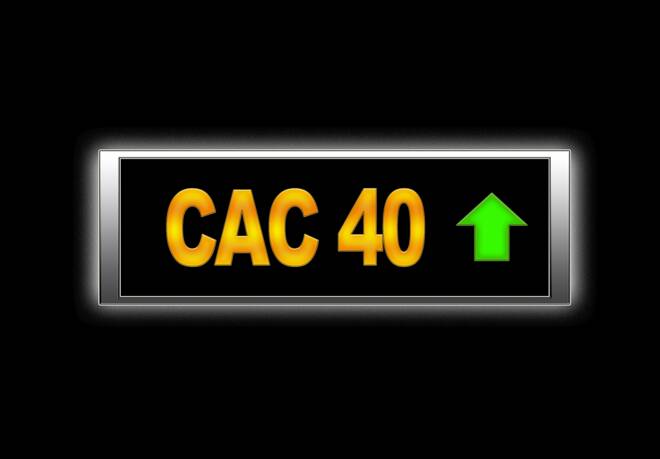Advertisement
Advertisement
European Equities: A Quiet Economic Calendar Leaves Geopolitics and COVID-19 in Focus
By:
A quiet day on the Eurozone economic calendar leaves geopolitics and COVID-19 news updates to provide direction early in the day.
The Majors
It was a bearish day for the European majors on Thursday. The CAC40 and EuroStoxx600 fell by 0.83% and by 1.02% respectively, with the DAX30 ending the day down by 0.29%.
Economic data and the latest uptrend in new COVID-19 cases weighed on the majors, with the markets now expecting further stimulus to counter the sputtering economic recovery.
The Stats
It was a relatively busy day on the Eurozone economic calendar. Germany’s IFO Business Climate Index and sub-index figures were in focus early in the European session.
In September, the Business Climate Index rose from 92.5 to 93.4. Economists had forecast a rise to 93.8. The current assessment sub-index rose from 87.9 to 89.2, with the expectations index up from 97.5 to 97.7.
By sector:
Manufacturing: The Business Climate Index saw a sizeable increase, with significantly fewer companies assessing their current business situation as difficult. More companies also expected that their business situation will improve.
Services: By contrast, the index fell for the 1st time in 5-months, as a result of weaker optimism. Firms viewed their current situation as marginally better.
Trade: Companies were considerably more satisfied with the current business situation, with many being more optimistic about the near-term.
Construction: The index was on the rise once more, with the current situation indicator hitting its highest level since March. While pessimism persisted, firms were less pessimistic than back in August.
From the U.S
It was a relatively busy day on the economic calendar. August new home sales and the weekly jobless claims figures were in focus late in the European session.
In August, new home sales rose by 4.8%, following a 13.9% spike in July. Economists had forecast a 0.1% decline, month-on-month.
More significantly, however, were the jobless claims figures.
In the week ending 21st September, initial jobless claims stood at 870k, which was up from 866k from the previous week. Economists had forecast 840k.
The Market Movers
For the DAX: It was a bullish day for the auto sector on Thursday. Continental rallied by 3.53% to lead the way, with Daimler and Volkswagen rising by 1.60% and by 1.90% respectively. BMW saw a more modest 0.48% gain on the day.
It was a mixed day for the banks after the scandal-driven sell-off. Deutsche Bank rose by 0.46% while Commerzbank ended the day down by 0.87%.
From the CAC, bank stocks saw more losses. Credit Agricole and Soc Gen slid by 1.83% and by 2.61% respectively. BNP Paribas saw a relatively modest 0.94% loss, however.
It was also a bearish day for the French auto sector. Peugeot and Renault ended the day down by 0.55% and by 0.36% respectively.
Air France-KLM hit reverse once more, sliding by 6.77%, with Airbus SE ending the day down by 3.46%.
On the VIX Index
The VIX fell by 0.24% on Thursday. Following a 6.40% gain on Wednesday, the VIX ended the day at 28.51.
Disappointing economic data from the U.S weighed on the majors, while FED Chair Powell’s talk of more support provided a cushion for the U.S markets on the day.
The NASDAQ and S&P500 rose by 0.37% and by 0.30% respectively, with the Dow ending the day up by 0.20%
The Day Ahead
It’s a particularly quiet day ahead on the Eurozone economic calendar. There are no material stats to provide the European majors with direction.
Late in the session, U.S durable goods and core durable goods will garner some interest, however.
With no stats to influence early on, geopolitics and COVID-19 will be the key drivers on the day. On the COVID-19 front, any talk of a reintroduction of restrictions would test support.
U.S – China tensions and Brexit chatter will also need monitoring.
The Futures
In the futures markets, at the time of writing, the Dow was up by 116 points, with the DAX up by 82.5 points.
For a look at all of today’s economic events, check out our economic calendar.
About the Author
Bob Masonauthor
With over 28 years of experience in the financial industry, Bob has worked with various global rating agencies and multinational banks. Currently he is covering currencies, commodities, alternative asset classes and global equities, focusing mostly on European and Asian markets.
Advertisement
